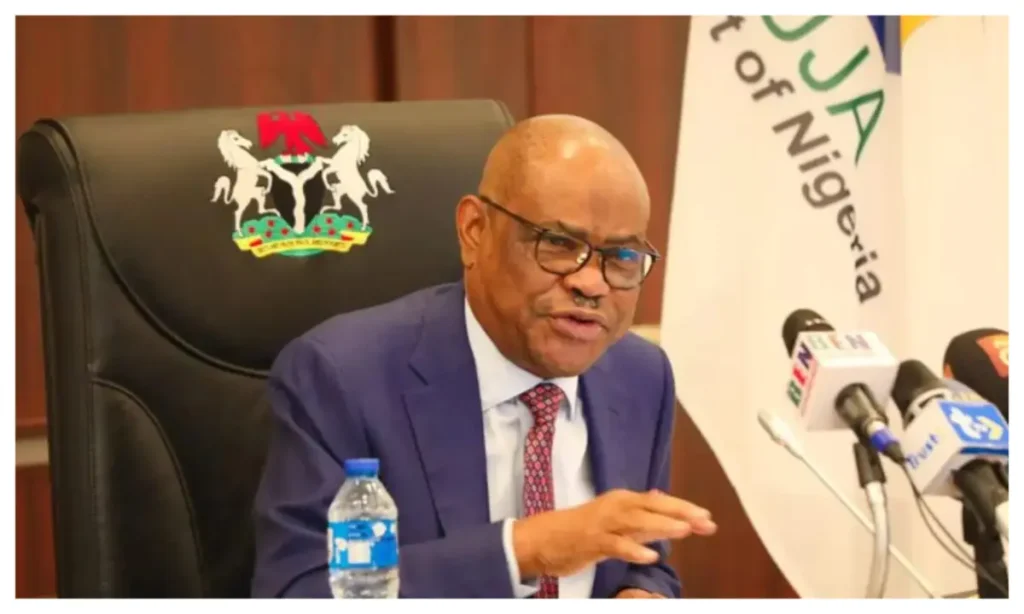The Minister of the Federal Capital Territory (FCT), Nyesom Wike, has lauded the successful conduct of the local government elections in Rivers State, describing the development as a crucial milestone towards the full restoration of democratic structures in the state.
Wike made the remarks on Saturday after casting his vote at Ward 9, Unit 7 in his hometown of Rumuepirikom, Obio/Akpor Local Government Area. The former Rivers State governor expressed appreciation to President Bola Ahmed Tinubu for ensuring the elections went ahead as scheduled on 18 September, calling it a significant move in addressing the state’s political impasse.
“The successful conduct of these elections has removed what could have been the only major point of contention between the executive and the legislature,” Wike stated. “It has cleared the coast for democracy to thrive in Rivers State once again.”
He emphasised the constitutional requirement for democratically elected officials at the local government level, noting that there is no legal basis for caretaker committees. According to Wike, without duly elected representatives, federal allocations to local councils would have been withheld, even if the ongoing state of emergency were to be lifted.
“And that is why we must thank Mr President for making sure this election is conducted,” he said. “The Supreme Court has made it clear that there is no such thing as a caretaker committee at the local government level. If you have no elected people, then funds from the Federation Account cannot be disbursed to the local governments.”
He cautioned that lifting the state of emergency without prior elections would have left the state mired in further governance challenges.
Regarding the legality of the polls, Wike was unequivocal, stating that the process had followed due legal procedure, unlike the previously annulled exercise purportedly held on 5 October 2024, which the Supreme Court ruled had not taken place at all.
“Today, we are holding an election. You can see people turning out to vote,” he said. “If you do something that is not backed by law, of course, it will be nullified—as it was in the past. This time, the process is clear and aligned with legal expectations.”
He further commended the Rivers State Independent Electoral Commission (RSIEC) for successfully conducting the elections, praising its adherence to transparency and legality.
Addressing concerns over low voter turnout in some areas, Wike explained that such patterns are common in commercial zones as opposed to residential communities or rural areas, where interest in local government elections tends to be higher.
“When you go to commercial areas, you don’t expect a large turnout,” he said. “But here in my community, you can see the people coming out. In other residential units and rural areas, participation is higher, especially because of the councilorship contests.”
He added that voter apathy among non-indigenes also contributes to the reduced numbers in urban areas, as many do not feel represented on the ballot.
Wike’s comments come at a time when Rivers State is striving to stabilise its political environment following a prolonged crisis between the state government and its legislature, which had led to the imposition of emergency measures.
With the conclusion of the local government polls, many observers see this as a pivotal moment in returning democratic governance and institutional stability to the oil-rich state.



